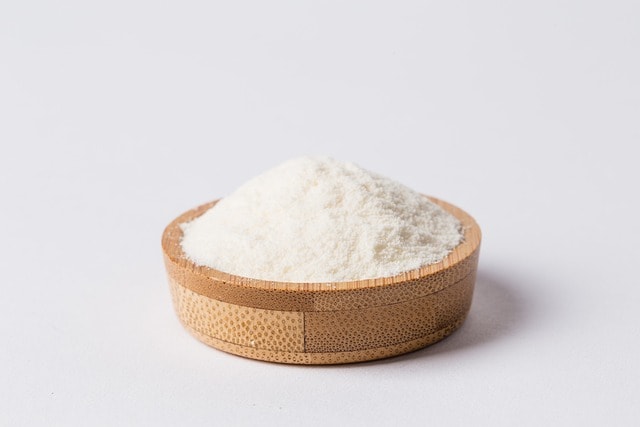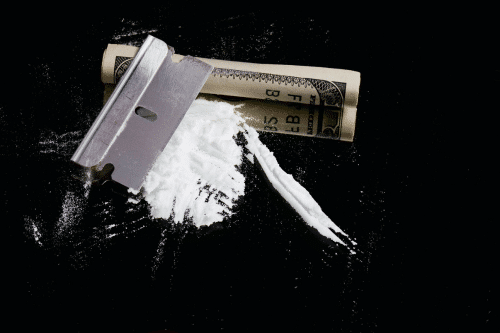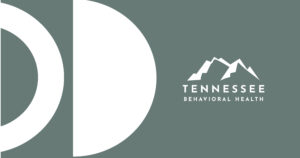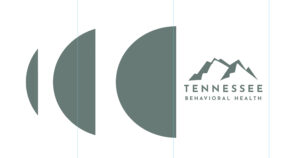What Is Cocaine Cut With? Understanding Common Adulterants and Risks
Tennessee Behavioral Health
The Reality of Illicit Drugs: Cocaine Cutting Agents
Cocaine is often cut with other substances to increase profits for dealers. These cutting agents may include sugars, flour, local anesthetics, or even dangerous substances like fentanyl. Dealers add these substances to stretch their supply, enhance perceived effects, or alter its appearance. The lack of regulation in illicit drug markets makes it impossible to know what is in the cocaine you purchase, significantly increasing health risks.

Risks of Cocaine Use
Cocaine use carries serious health risks, including the potential for addiction, overdose, and long-term damage to the body. Chronic use can lead to stimulant use disorder, the clinical term for cocaine addiction. Many of the dangers of cocaine stem from unknown additives, which can create unexpected and life-threatening effects. For example, cocaine cut with fentanyl has led to a dramatic increase in overdoses due to the potency of this synthetic opioid. The increasing prevalence of cocaine laced with fentanyl and levamisole poses significant health risks, as these adulterants are often mixed into cocaine by drug dealers to reduce costs, leading to higher rates of overdose incidents and severe adverse health effects among users.
Additionally, there is a rising trend of drug abuse related to cocaine laced with fentanyl, highlighting the dangers and risks posed by this dangerous combination.
Cocaine Addiction: A Growing Concern
Cocaine addiction is a growing concern in many communities. The progression from casual use to addiction can be swift and devastating. Effective treatment options for cocaine addiction include medical detox, counseling, and aftercare programs. Evidence-based treatments, such as cognitive-behavioral therapy (CBT), and holistic approaches can help individuals overcome addiction and maintain long-term recovery.
The Impact of Additives and Fillers on the Body

The additives and fillers used to cut cocaine can have severe effects on the body, depending on the substances used. Cutting cocaine involves adulterating it with various substances to increase profits or alter its effects, which can pose significant health risks. For example, boric acid, a common filler, can cause kidney damage with repeated exposure. Psychoactive substances, such as fentanyl or synthetic stimulants, can significantly increase the risk of overdose. Immediate medical attention is necessary if someone experiences chest pain, difficulty breathing, or becomes unresponsive after using cocaine, as these additives can be potentially dangerous substances.
How to Recognize Cut Cocaine
Identifying cut cocaine visually is nearly impossible. While there are signs that may suggest cocaine has been altered, such as unusual textures or tastes, these are not reliable indicators. According to the DEA, a significant percentage of seized cocaine contains levamisole, highlighting its growing presence and potential health implications for users. Cocaine purity testing kits, including fentanyl test strips, are the most effective way to detect harmful additives. These kits are often available at local health departments, needle exchange programs, or community outreach centers.
Tennessee Behavioral Health
The Myth of Pure Cocaine
Pure cocaine is rarely found on the street. Research from the United Nations indicates that most cocaine samples contain added substances. Drug dealers commonly mix cocaine with sugars, flour, or other chemicals to increase volume and profitability. Unfortunately, buyers often remain unaware of these additives, exposing themselves to harmful and potentially fatal substances.
Getting Help for Cocaine Addiction
If you are struggling with cocaine addiction, help is available. Tennessee Behavioral Health offers comprehensive cocaine addiction treatment programs tailored to individual needs. Our approach combines medical detox, counseling, and ongoing support to help individuals achieve and maintain sobriety. Addiction is a progressive disease, but recovery is possible with the right support and resources.

Tennessee Behavioral Health: A Resource for Recovery
At Tennessee Behavioral Health, we understand the complexities of addiction and the dangers of illicit drug use. Located in Nashville, Tennessee, our programs are designed to provide a safe and supportive environment for individuals seeking recovery. We offer evidence-based treatments, such as individual counseling, group therapy, and holistic approaches to address the whole person. Our experienced staff is dedicated to guiding you through every step of the recovery process.
The Importance of Awareness and Education
Education and awareness are critical to reducing the risks associated with cocaine use. Effective disease control measures are essential in addressing the opioid crisis, as highlighted by the Centers for Disease Control (CDC). Understanding the dangers of cutting agents and the importance of seeking help can save lives. The risks associated with cocaine being mixed with fentanyl and other drugs significantly heighten the danger of overdose. If you or someone you know is struggling with cocaine addiction, reach out to Tennessee Behavioral Health for the support you need to start your recovery journey today.
Conclusion
Cocaine is a highly addictive and dangerous drug that can have severe consequences for users, especially when it is cut with other substances. The use of cutting agents in cocaine can increase the risk of overdose, addiction, and other health problems. It is essential to be aware of the risks associated with cocaine use and to seek help if you or someone you know is struggling with addiction.
Cocaine addiction is a treatable disease, and there are many effective treatment options available. If you are struggling with cocaine addiction, it is crucial to seek help from a qualified healthcare professional. They can help you develop a personalized treatment plan that addresses your specific needs and goals.
In addition to seeking professional help, there are several steps you can take to reduce your risk of cocaine addiction. These include:
Avoiding the use of illicit drugs, including cocaine
Being aware of the risks associated with cocaine use, including the potential for cutting agents
Seeking help if you or someone you know is struggling with addiction
Supporting efforts to reduce the availability of illicit drugs in your community
By taking these steps, you can help reduce the risks associated with cocaine use and protect yourself and others from the dangers of addiction.
It is also important to note that cocaine is often cut with other substances, including fentanyl, which can be potentially deadly. If you are using cocaine, it is essential to be aware of the risks associated with fentanyl and to take steps to protect yourself.
In conclusion, cocaine is a dangerous and addictive drug that can have severe consequences for users. It is essential to be aware of the risks associated with cocaine use and to seek help if you or someone you know is struggling with addiction. By taking steps to reduce the risks associated with cocaine use and seeking help when needed, you can protect yourself and others from the dangers of addiction.
Tennessee Behavioral Health
FAQ's
Cocaine is often mixed with various substances to increase its volume and profitability for dealers. Common cutting agents include harmless materials like sugars (e.g., lactose or glucose) and more dangerous substances such as local anesthetics (e.g., lidocaine) or psychoactive chemicals (e.g., fentanyl or synthetic stimulants). Some of these substances can significantly increase the risk of adverse effects or overdose, making it impossible to determine the safety of any street-purchased cocaine.
The health risks of using cut cocaine depend on the substances used. Additives like sugars may cause minimal harm, but dangerous fillers such as fentanyl can lead to severe side effects, including respiratory depression and overdose. Chronic exposure to toxic fillers, like boric acid, can damage internal organs, such as the kidneys. Since it is nearly impossible to know what substances are in cocaine, using it always carries significant health risks, including addiction, cardiovascular issues, and overdose.
Visually identifying whether cocaine has been cut is nearly impossible. While unusual textures or tastes may indicate alterations, they are not reliable signs. The most effective way to detect harmful additives is by using testing kits, such as fentanyl testing strips or cocaine purity kits. These tools are often available through local health departments, harm reduction programs, or community outreach organizations and can provide a safer way to assess substances before use.
Cocaine addiction can be effectively treated through a combination of evidence-based methods and holistic care. Treatment often begins with medical detox to manage withdrawal symptoms, followed by therapy options like cognitive-behavioral therapy (CBT) or group counseling. At Tennessee Behavioral Health, we offer a personalized approach to cocaine addiction treatment, ensuring each individual receives comprehensive care that meets their unique needs. Supportive aftercare programs and alumni networks can help individuals maintain sobriety and navigate their recovery journey long-term.




